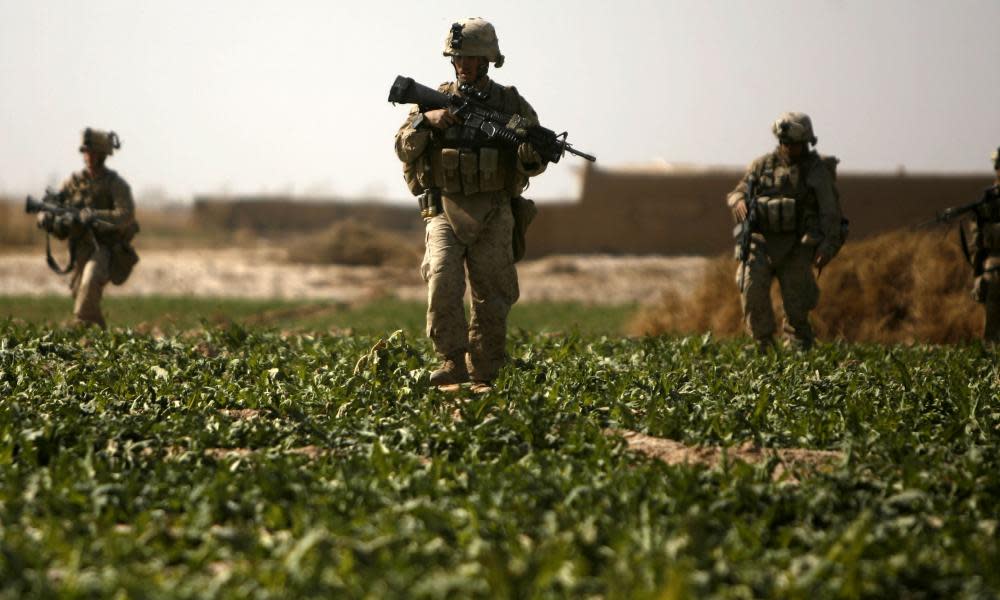The lack of legality in the US-led invasion of Afghanistan | Letters

Was the 2001 US-led invasion and subsequent ongoing occupation of Afghanistan “never an illegal war”, as the Guardian asserts (Editorial, 23 August)?
Written in 2010, the official House of Commons Library briefing paper on the subject makes interesting reading: “The military campaign in Afghanistan was not specifically mandated by the UN, but was widely (although not universally) perceived to be a legitimate form of self-defence under the UN charter.”
The paper goes on to explain that article 2(4) of the UN Charter prohibits the “threat or use of force against the territorial integrity or political independence of any state”. The accepted exceptions to this are when the security council authorises military action or when it is in self-defence under article 51 of the charter.
Writing a month into the invasion, Marjorie Cohn, a professor of law at California’s Thomas Jefferson School of Law and a former president of the US National Lawyers Guild, described the US and British attack as “a patently illegal use of armed force”. The bombing was not a legitimate form of self-defence under article 51 for two reasons, according to Cohn.
First, “the attacks in New York and Washington DC were criminal attacks, not ‘armed attacks’ by another state”. Second, “there was not an imminent threat of an armed attack on the US after September 11, or the US would not have waited three weeks before initiating its bombing campaign”.
Ian Sinclair
London
• Donald Trump declares that he will win the Afghan war that you say is both unwinnable and unlosable. If the war is to continue indefinitely, then the world faces a miserable future, because the “war on terror” is one of the main drivers of Islamic terrorism.
But there is a way of bringing the misery to an end. To win a war we need to win the hearts and minds of the people. We cannot do this while the most valuable crop they are growing is illegal. Afghanistan’s economy is now heavily dependent on opium, and at present the trade is run by the Taliban, who are sustained by its profits, and export it to feed addiction and crime in the west. The illicit opium trade is one factor in the endemic corruption that is holding the country back. Meanwhile, about 6 million Africans die of cancer each year, their agony unrelieved by morphine or heroin.
Five problems, one solution. Buy the opium crop from the Afghan farmers, medicalise it, and use it in Africa. Everyone benefits, except the Taliban and the drug barons.
When asked why this is not done, the stock government reply is that some of the medical morphine might leak on to the drugs market.
So sad, as Trump would say.
Dr Richard Lawson
Churchill, North Somerset
• Join the debate – email guardian.letters@theguardian.com
• Read more Guardian letters – click here to visit gu.com/letters

 Yahoo News
Yahoo News 